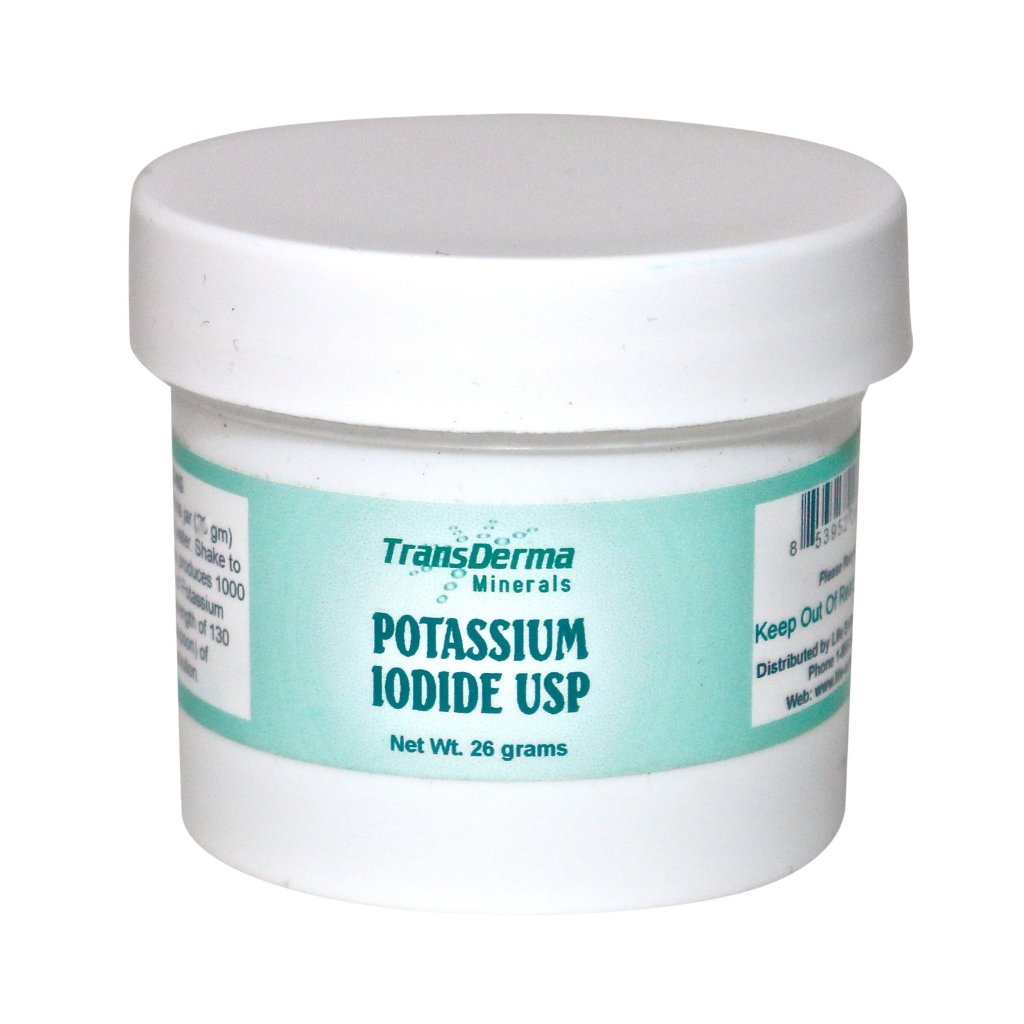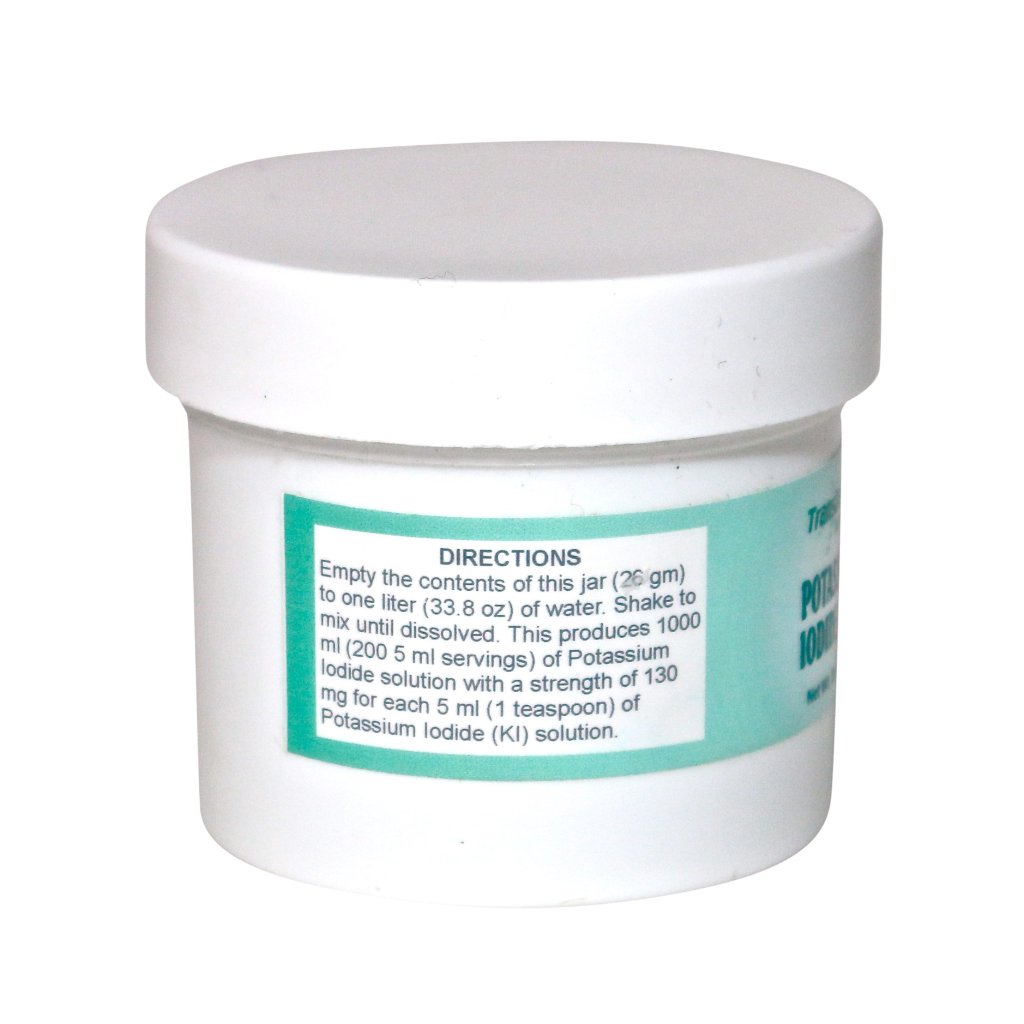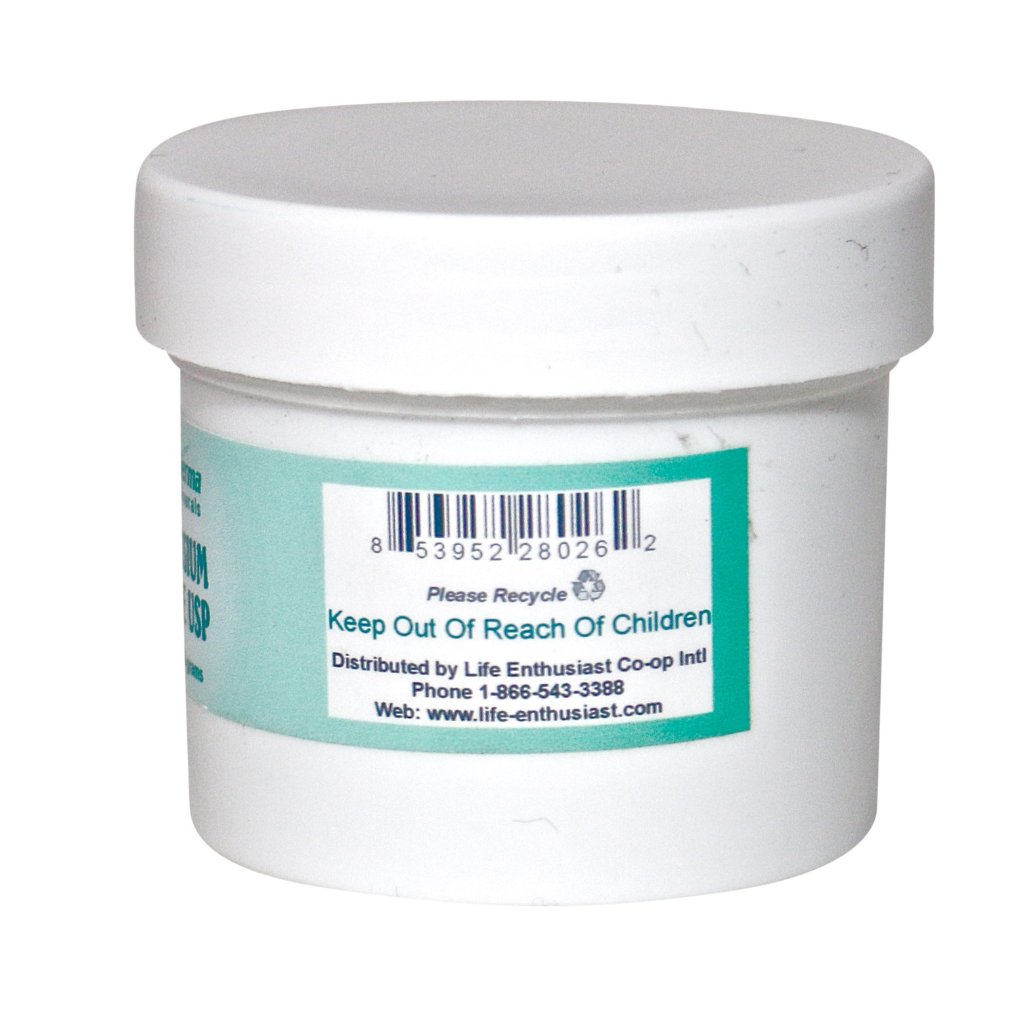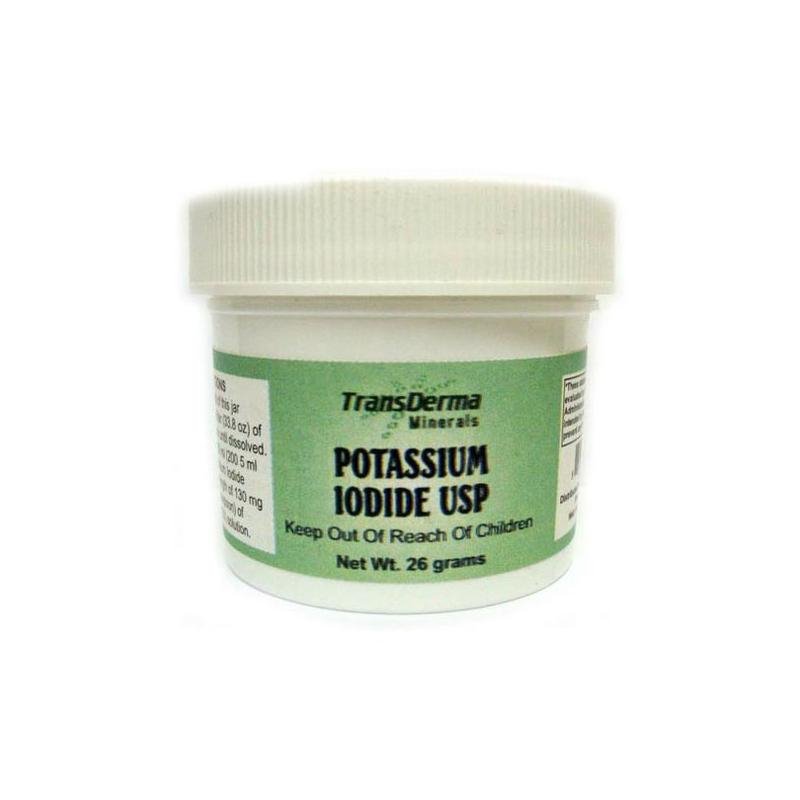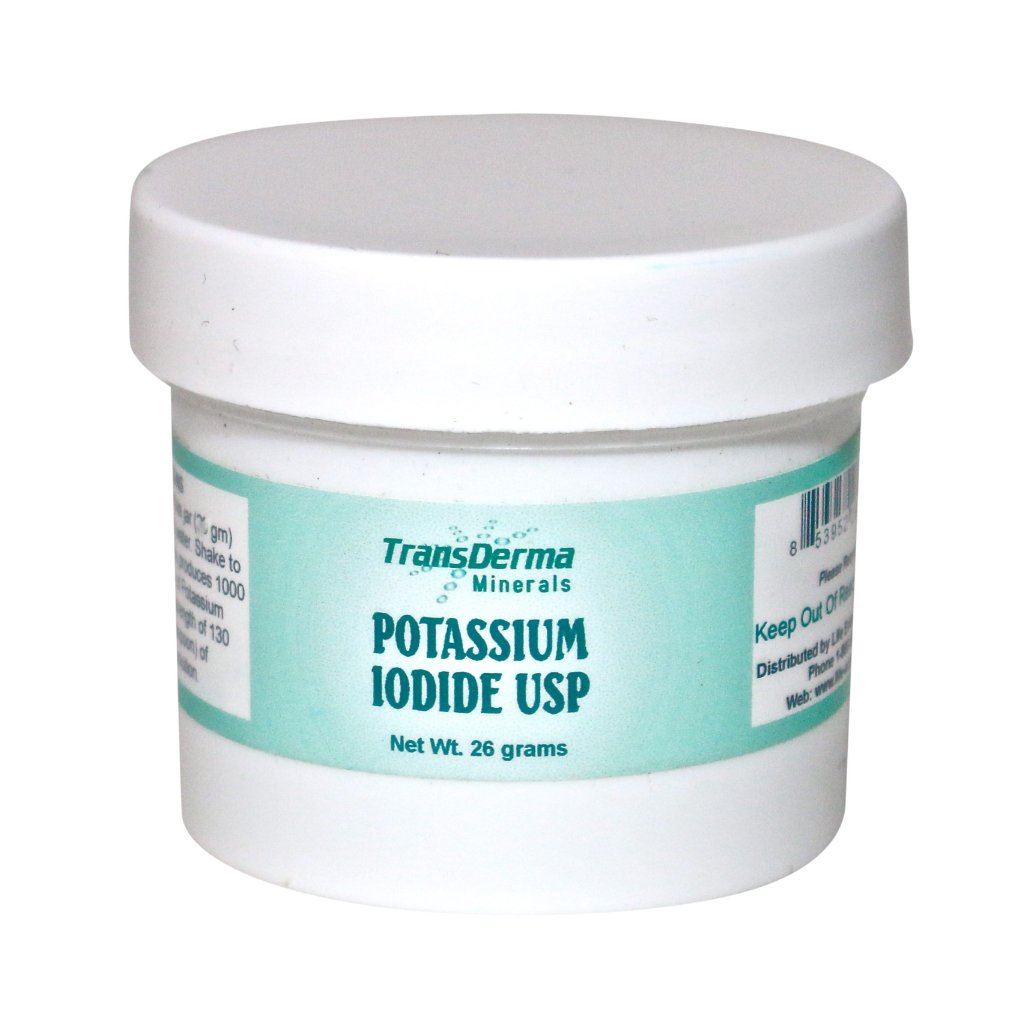
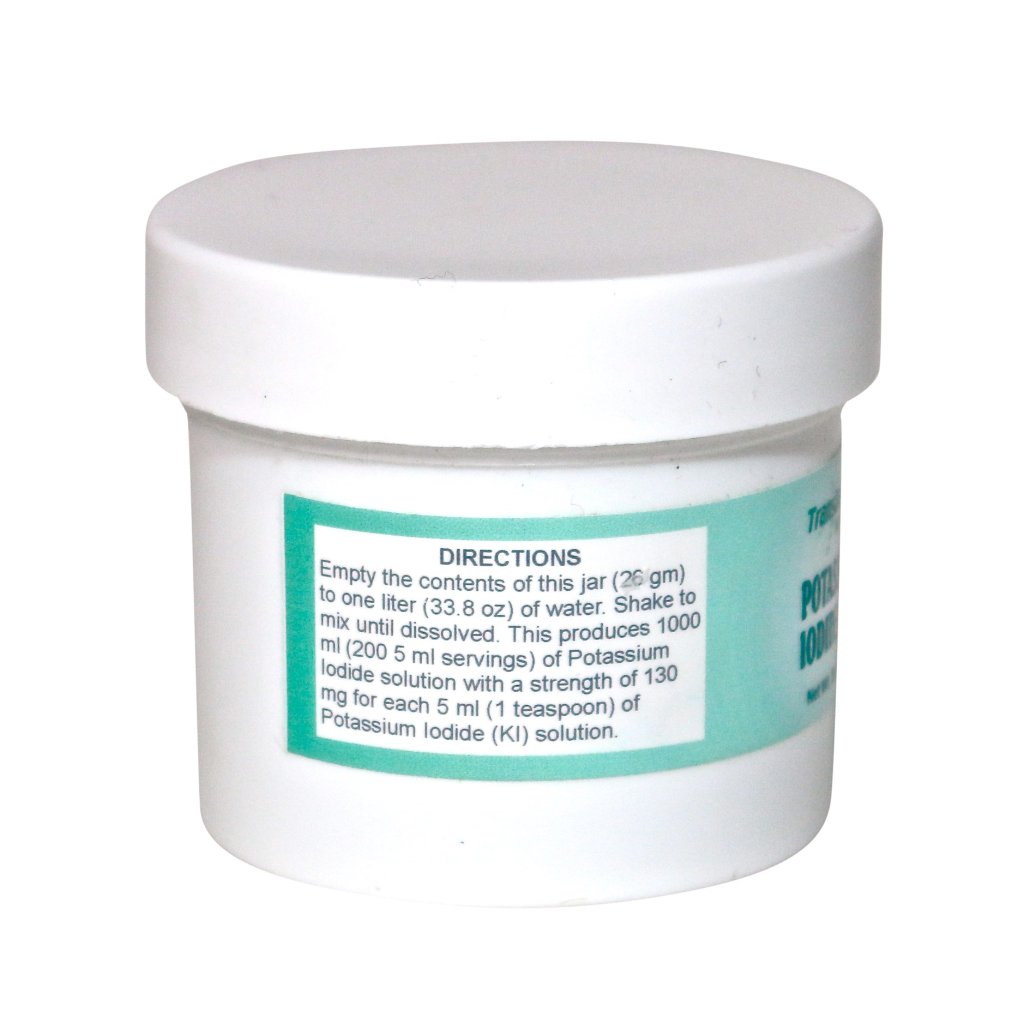
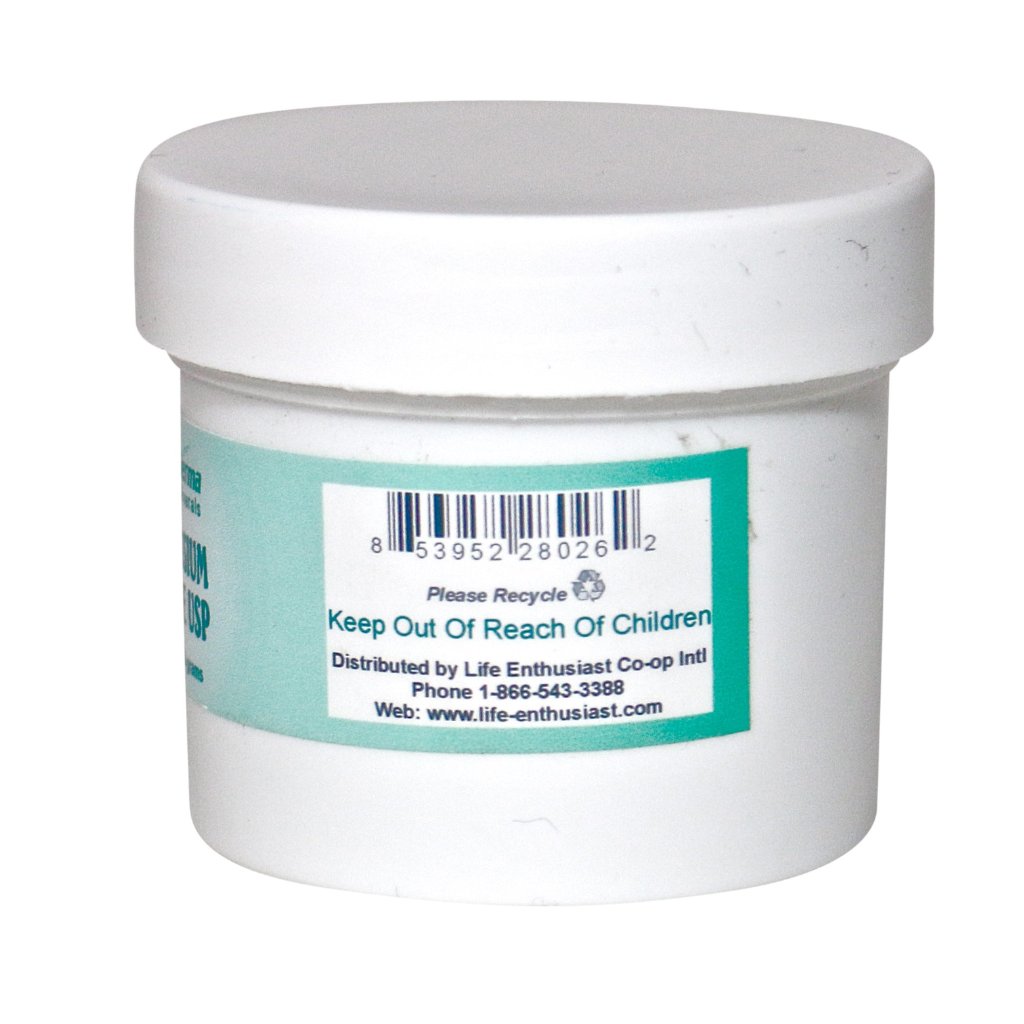
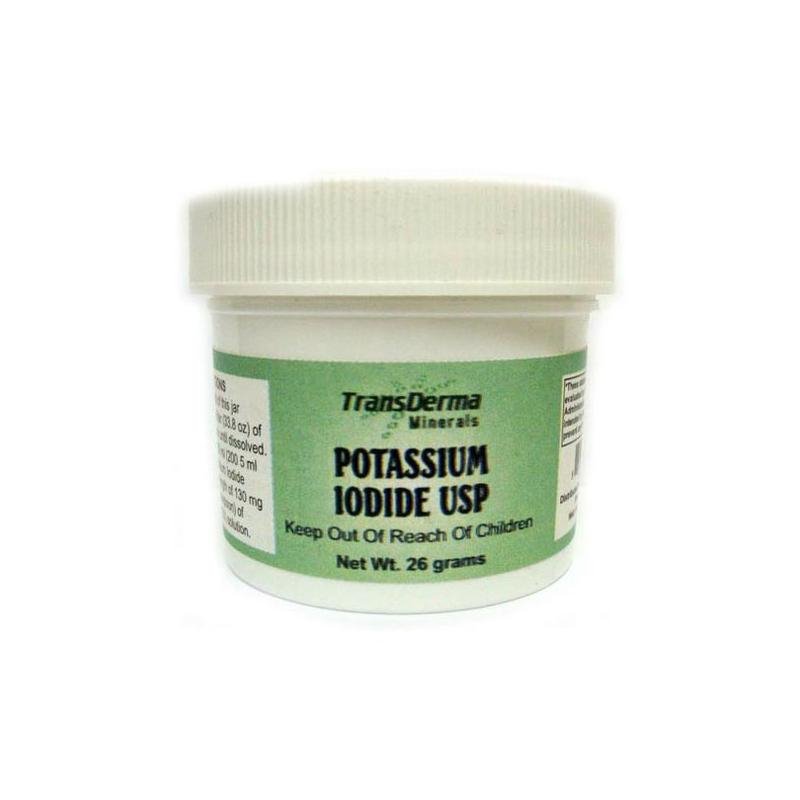
Questions & Answers
Have a Question?
-
How much potassium iodide (KI) should a person take?
The FDA has approved two different forms of KI—tablets and liquid—that people can take by mouth after a nuclear radiation emergency. The less than saturated Potassium Iodide solution made with TransDerma Minerals Potassium Iodide USP contains 130 mg per 5 mL (1 teaspoon) which equals one adult dose.
According to the FDA, the following doses are appropriate to take after internal contamination with (or likely internal contamination with) radioactive iodine:
Adults should take 130 mg (five mL - 1 teaspoon - of less than saturated solution).
Women who are breast feeding should take the adult dose of 130 mg (five mL - 1 teaspoon - of less than saturated solution).
Children between 3 and 18 years of age should take 65 mg (2.5 mL - 1/2 teaspoon - of less than saturated solution).
Children who are adult size (greater than or equal to 150 pounds) should take the full adult dose, regardless of their age.
Infants and children between 1 month and 3 years of age should take 32 mg (1.25 mL - 1/4 teaspoon - of less than saturated solution).
This dose is for both nursing and non-nursing infants and children.
Newborns from birth to 1 month of age should be given 16 mg (.63 mL - 1/8 teaspoon - of less than saturated solution).
This dose is for both nursing and non-nursing newborn infants.
Less than saturated Potassium Iodide (KI) solutions, when properly mixed, should give even more accurate dosages because there is more solution overall to be measured out per dose. For example, mixing and dissolving exactly 26 grams of Potassium Iodide USP into a one liter bottle of water produces 1000 ml of Potassium Iodide solution with a strength of 130 mg for each 5 ml (1 teaspoon) of that Potassium Iodide (KI) solution.
There are 200 of those 5 ml servings in that 1000 ml (1 liter). Five ml can be easily and accurately measured out with a common graduated medicine dropper or one teaspoon. -
How often should I take potassium iodide solution (KI)?
A single dose of KI protects the thyroid gland for 24 hours. A one-time dose at the levels recommended in this fact sheet is usually all that is needed to protect the thyroid gland. In some cases, radioactive iodine might be in the environment for more than 24 hours. If that happens, local emergency management or public health officials may tell you to take one dose of KI every 24 hours for a few days.
You should do this only on the advice of emergency management officials, public health officials, or your doctor. Avoid repeat dosing with KI for pregnant and breastfeeding women and newborn infants. Those individuals may need to be evacuated until levels of radioactive iodine in the environment fall.
Taking a higher dose of KI, or taking KI more often than recommended, does not offer more protection and can cause severe illness or death. -
What medical conditions may make it harmful to take potassium solution (KI)?
Taking KI may be harmful for some people because of the high levels of iodine in this medicine.
You should not take KI if:
- you know you are allergic to iodine (If you are unsure about this, consult your doctor. A seafood or shellfish allergy does not necessarily mean that you are allergic to iodine.) or
- you have certain skin disorders (such as dermatitis herpetiformis or urticaria vasculitis).
People with thyroid disease may be treated with KI. This should happen under careful supervision of a doctor, especially if dosing lasts for more than a few days.
In all cases, talk to your doctor if you are not sure whether to take KI. -
What are the possible risks and potential side effects of taking Potassium Iodide USP?
When public health or emergency management officials tell the public to take KI following a radiologic or nuclear event, the benefits of taking this drug outweigh the risks. This is true for all age groups. Some general side effects caused by KI may include intestinal upset, allergic reactions (possibly severe), rashes, and inflammation of the salivary glands.
When taken as recommended, KI causes only rare adverse health effects that specifically involve the thyroid gland. In general, you are more likely to have an adverse health effect involving the thyroid gland if you take a higher than recommended dose of KI, take the drug for several days, or have pre-existing thyroid disease.
Newborn infants (less than 1 month old) who receive more than one dose of KI are at particular risk for developing a condition known as hypothyroidism (thyroid hormone levels that are too low). If not treated, hypothyroidism can cause brain damage. Infants who receive KI should have their thyroid hormone levels checked and monitored by a doctor. Avoid repeat dosing of KI to newborns. -
What does Potassium Iodide USP contain?
USP Grade Potassium Iodide (KI) powder.
-
What is the recommended use of my Potassium Iodide USP?
Protect your thyroid gland from radioactive iodine damage (from a nuclear accident) with USP Grade Potassium Iodide (KI). Use 130 mg of Iodine per person per day until all fallout has dissipated. It is OK to use as iodine supplement.
-
How do I enjoy my Potassium Iodide USP?
Add 1 level tablespoon (26 grams) of Potassium Iodide to one liter (34 oz) of water. Shake to mix until dissolved. Each liter yields 200 of 5 ml servings. This produces 1000 ml of Potassium Iodide less than saturated solution with a strength of 130 mg of Iodine for each 5 ml (1 teaspoon) of Potassium Iodide solution, the recommended daily serving for emergency use in case of a nuclear accident that releases radioactive iodine into the air.
When this happens you have the greatest danger in the first day of the exposure. Radioactive iodine has the half-life of 8 days - 50% of it will decay by the 8th day. Your thyroid is always looking for iodine, and will pull in the toxic material, unless it is already saturated. The jars are BPA-free, white heavy wall polypropylene. Potassium Iodide is stable. If unopened and kept dry, the shelf life is at least 7 years. -
Why is taking potassium iodide beneficial to our diet?
Potassium iodide is beneficial for various reason, but chief among them is that it helps to filter the body. Potassium iodide has been cited for its potential to filter out harmful mercury, fluorides, chlorides and bromides from tissues and cells. It also helps reduce arthiritis risk and can promote hormonal balance. It also reduces the risk of developmental and growth problems.
Potassium iodide is known as the thyroid mineral, which indicates that it can help keep iodine levels in the thyroid balanced. If iodine levels in the body are not optimal, this can potentially lead to hyper or hypothyroidism. Potassium iodide can also act as anti-fungal, as solutions of potassium iodide have been shown to be effective in treating cutaneous sporotrichosis, a type of fungal infection. -
What is potassium iodide?
Potassium iodide is a medicine that can help relieve congestion in people with breathing problems such as asthma and bronchitis. It can also be used to treat an overactive thyroid and a skin condition known as sporotrichosis.

